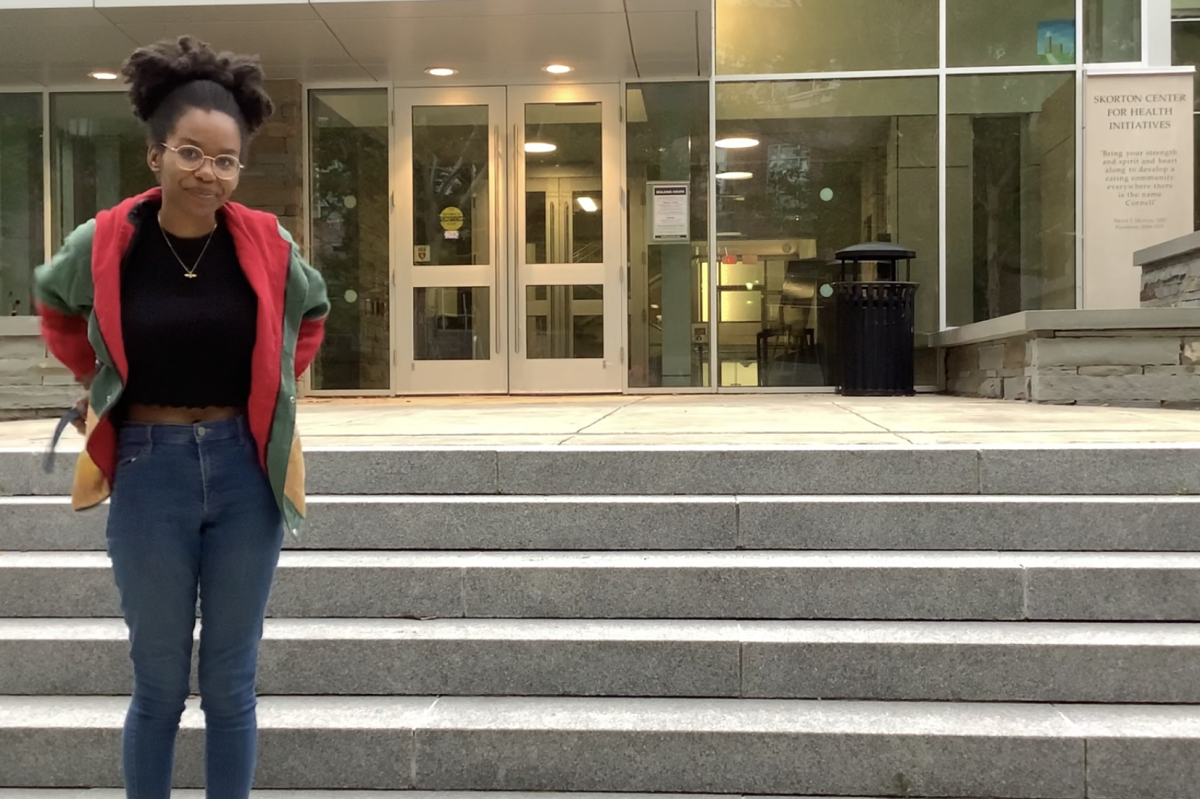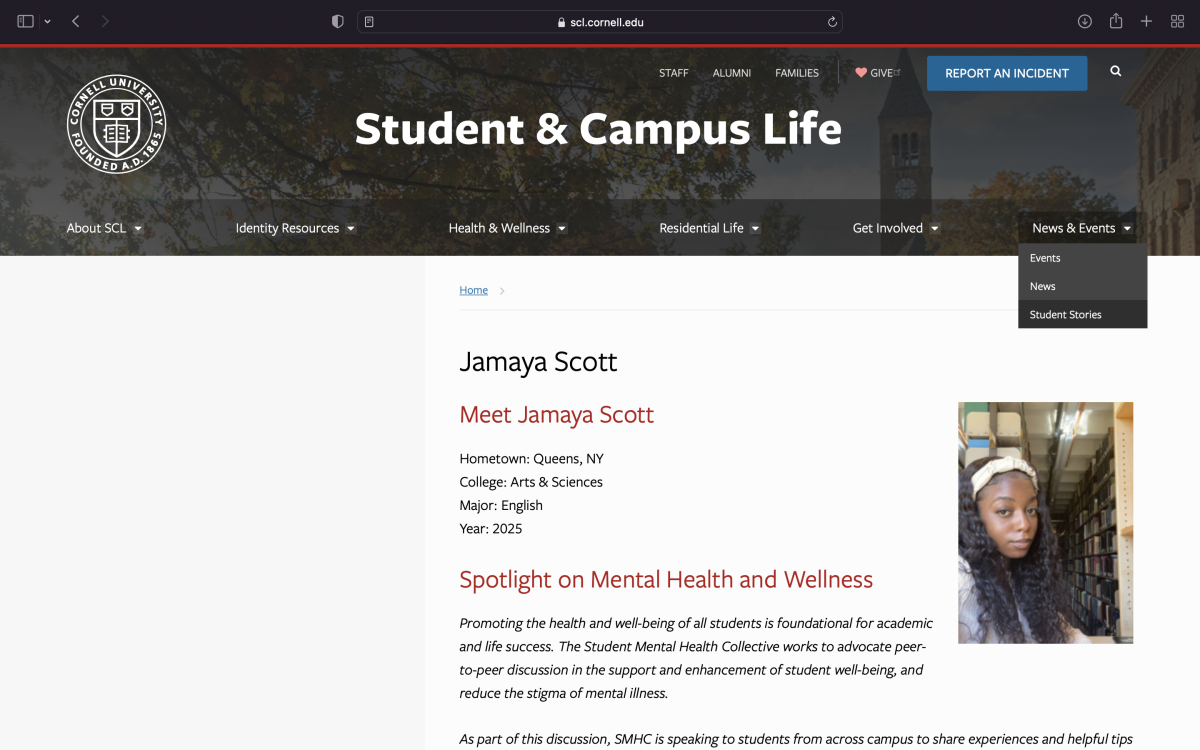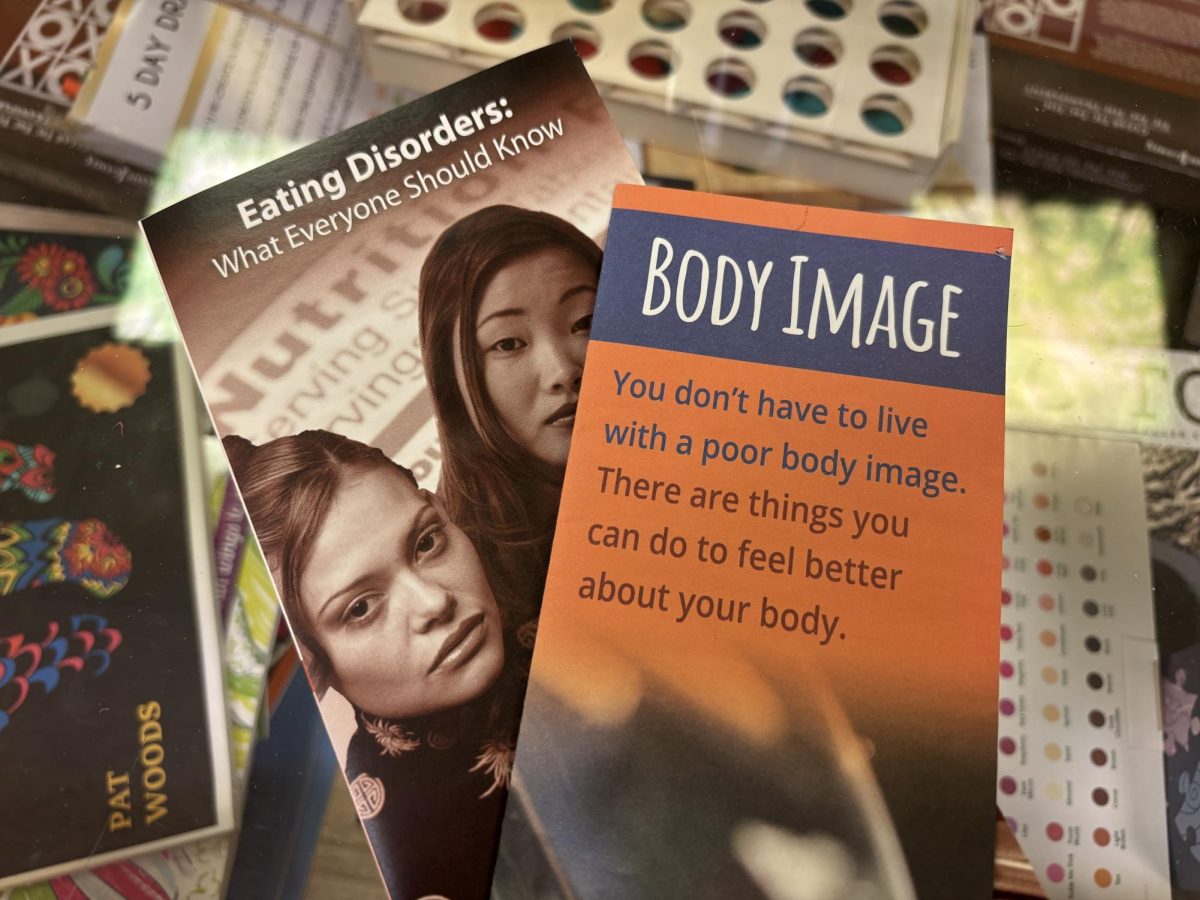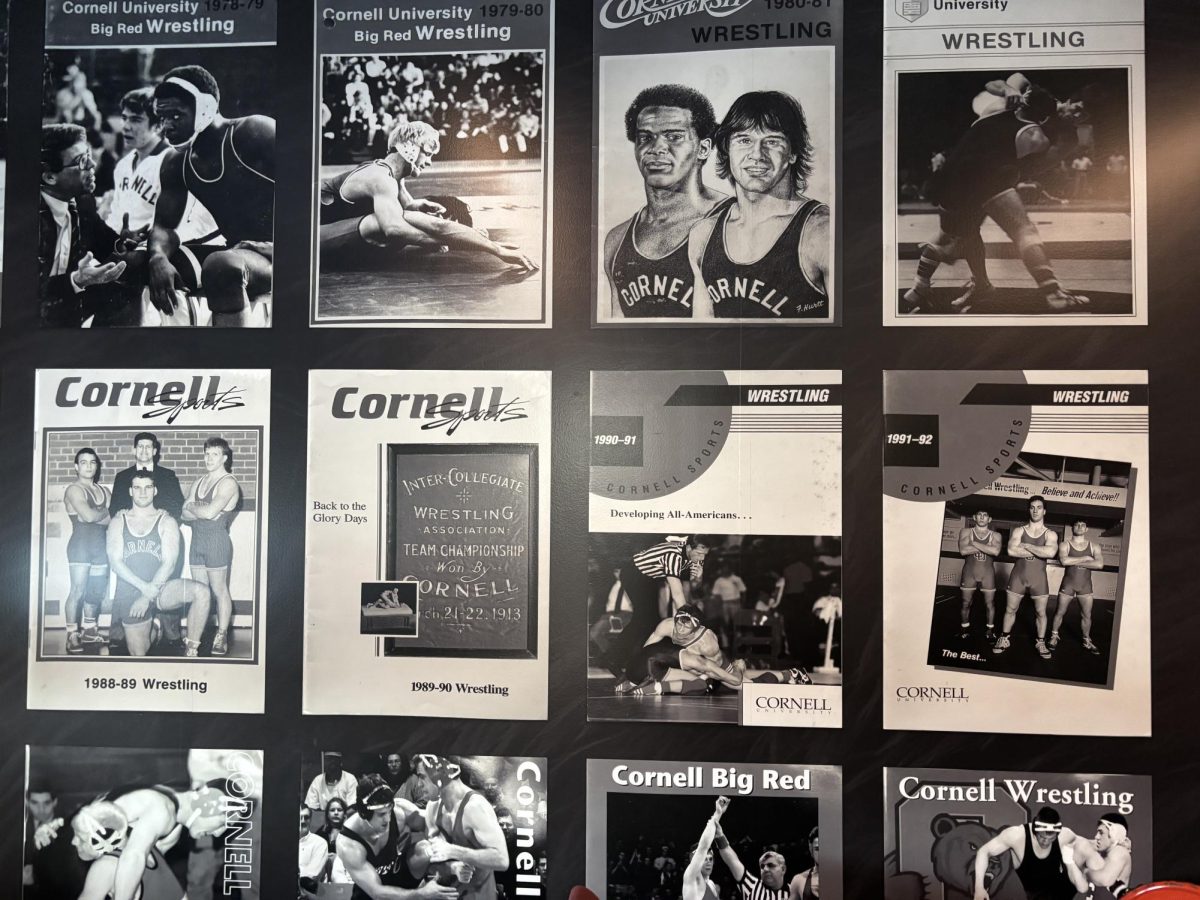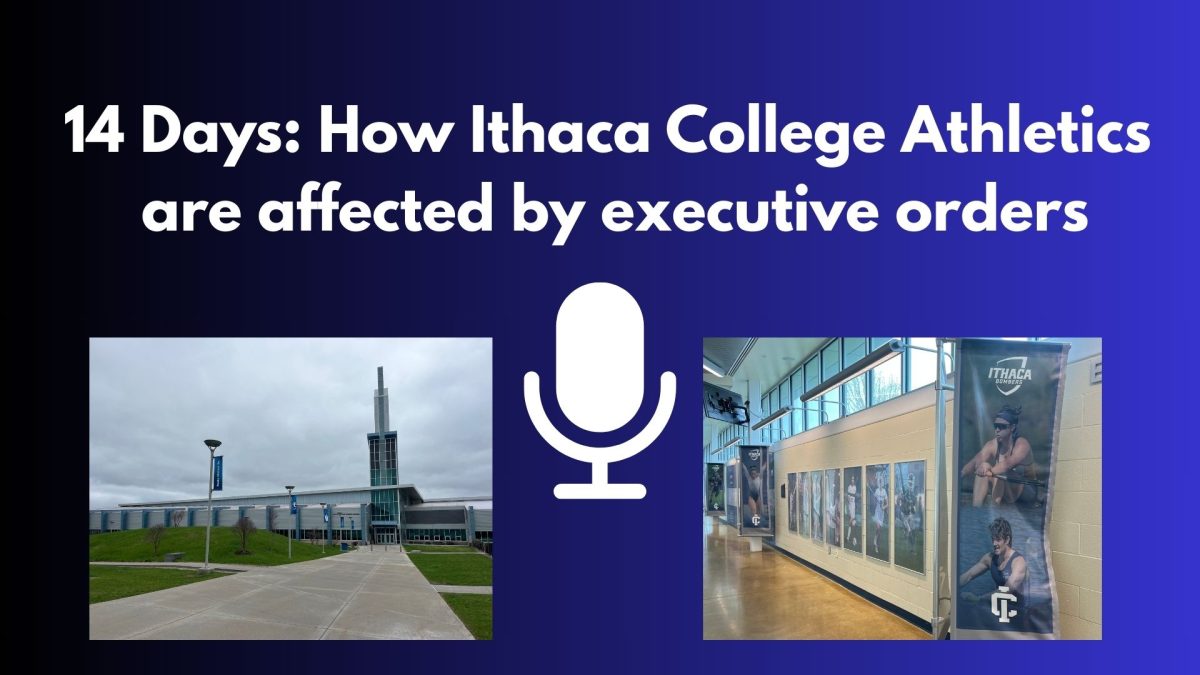Cornell’s mental health orgs are working with Student and Campus Life on a mental health awareness campaign.
Student mental health organizations at Cornell University have united to launch the Student Mental Health Collective (SMHC). The collective works as a network for the orgs to share programming ideas and resources with one another.
This year, SMHC is collaborating with Cornell’s Office of Student and Campus Life on a social media campaign. Over the course of the academic year, the campaign will highlight the eight dimensions of wellness — emotional, occupational, intellectual, environmental, financial, social, physical and spiritual. The campaign spotlights Cornell students’ experiences with mental health in relation to the given dimension. The first dimension highlighted was resilience. Three students have shared their stories so far.
Stronger in numbers
Senior Bianca Beckwith, a previous president for Cornell Minds Matter (CMM), said student mental health orgs have shared the sentiment of joining forces for a long time. Alongside CMM, SMHC also includes Empathy, Assistance & Referral Service (EARS), Cornell Reflect and Body Positive Cornell among others. The collective was solidified after the idea was suggested in the university’s most recent Mental Health Review.
Beckwith said that each mental health org brings something different to the table, whether it be their target demographic or specific intervention training. For instance, Cornell’s BOSS (Building Ourselves through Sisterhood and Service) connects women of color.
“I definitely think we’re stronger together by being able to talk about our histories as an organization, [while] still staying true to what we do specifically,” Beckwith said.
Work done by students

Beckwith said that, historically, mental health work done on camps has fallen on students and student orgs. SMHC gives orgs more opportunities to collaborate, spreading the wealth and the workload.
“Even though it’s work that we enjoy, how can we make this easier for all of us to be involved in what we are passionate about and get more students involved?” Beckwith said.
Senior Amisha Chowdhury, student advocate of Cornell’s Student Assembly, said that Cornell students are aware of the mental health crisis on campus and discuss it openly. Chowdhury said talking about the issues is not enough.
“My future hope for Cornell’s mental health would be for faculty and admin to actually take tangible steps in addressing mental health issues,” Chowdhury said via email. “This includes making sure students know about resources and can easily get help when they need it.”
How work environment influences wellness
Beckwith said it’s no secret that Cornell is an academically rigorous campus. She said the competition among students can breed stress, self-comparison and struggles with self-worth.
Beckwith also mentioned that age and culture differences that often exist between professors and students can create a disconnect in mental health conversations. She gave the example of students today taking mental health days, something perhaps unfamiliar to older generations.
“Especially professors who grew up in an environment where … they didn’t have those same resources offered to them as students,” Beckwith said. “They perpetuate those same unhealthy environments that they’re just used to.”
Chowdhury said that academic stress is further exacerbated when students are struggling to meet their basic needs such as food, housing and healthcare. Chowdhury is working on a coalition with first-generation and low-income students at Cornell to create a one-stop location for such resources.
“Mental health is directly connected with basic needs,” Chowdhury said via email. “Students can’t get the proper care they need for their mental health if they’re dealing with basic needs.”
The next dimension
Chowdhury said that if she could tell her younger college self anything, it would be that it’s okay to ask for help.
“College can be isolating if you don’t reach out to people and take initiative to connect with others,” Chowdhury said via email. “Don’t be afraid, try to get out of your comfort zone … .”
The SHMC campaign will continue to highlight student experiences on building resilience through September. Student spotlights for the next dimension of wellness, social connection, will be published in early October.

